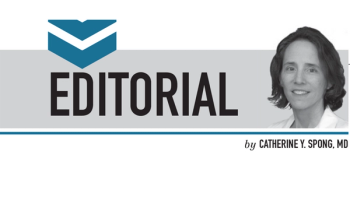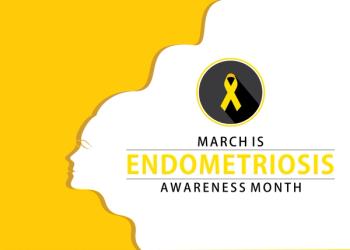
Marking the end of an era and the beginning of a new chapter, the final print edition of Contemporary OB/GYN celebrates over 50 years of evidence-based guidance and unwavering support for clinicians.

Catherine Y. Spong, MD, is Editor-in-Chief of Contemporary OB/GYN; Professor and Chair of Obstetrics and Gynecology; and Gillette Professorship of Obstetrics and Gynecology at UT Southwestern Medical Center in Dallas, Texas.

Marking the end of an era and the beginning of a new chapter, the final print edition of Contemporary OB/GYN celebrates over 50 years of evidence-based guidance and unwavering support for clinicians.

Despite making up more than half of the US population, women remain underrepresented in medical research, leading to critical gaps in understanding and treatment.

Loneliness, amplified by the pandemic and digital dependence, poses serious health risks, affecting patient outcomes and clinician well-being.

From the eradication of smallpox to the COVID-19 pandemic, vaccines have revolutionized health care, but rising vaccine hesitancy now threatens progress, especially among pregnant women.


The Dobbs v Jackson Women’s Health Organization decision has significantly influenced ob-gyn residency applications, particularly in states with complete abortion bans, leading to notable shifts in applicant preferences and program dynamics.


Stillbirths are one of the most tragic situations for obstetrician-gynecologists to encounter, making awareness vital.

The past few years have seen significant changes to the health care landscape, but how can physicians in obstetrics and gynecology adapt?

More evidence is needed to help clinicians manage chronic hypertension.


Research shows social determinants of health arena.

In the editorial featured in the March 2023 issue, Contemporary OB/GYN Editor-in-Chief Catherine Spong, MD, previews the issue's cover story on maternal mortality.

Identifying the optimal gestational age with minimal complications for mother and baby has been a topic of long-standing interest.

Last year was a big one for obstetrics and gynecology.

Although leadership in our post-pandemic climate is probably no more challenging than at any other time, it certainly feels that way.

Why obstetrics and gynecology is seeing an increase in applicants


This month we focus on pediatric adolescent gynecologic topics, which are critical to our practices (and our families).

Obstetrics and gynecologists (ob-gyns) are tough.

National awareness months and days span a variety of topics, from celebrated foods (think National Ice Cream Day, National Bagel Day, National Pizza Day) to businesses (free Slurpee at 7-Eleven) to our terrain: health issues. March alone is a national health awareness month for over 10 conditions, one of which is endometriosis.

For more than 70 years, vaccination has been a public health strategy for disease mitigation. Even in populations often considered “vulnerable”—children and pregnant women—vaccination is strongly recommended and commonly embraced.

The impact of hospitalization from COVID-19, especially severe disease, has greatly impacted our health care system—particularly the nursing staff.

Contemporary OB/GYN® has aimed to address prevalent topics for our readers, including not only areas related to the pandemic but ones we encounter day to day.

As physicians, our goal is to provide appropriate, expert medical care—the highest quality—to our patients. Increasingly, external policies and legislation encroach on our ability to provide this care.

As we move into yet another surge of COVID-19, the likelihood of remembering what was normal, and if we will “return” to normal, dims.

Even with these recommendations, women commonly ask questions about alcohol consumption and breastfeeding such as “Should I pump and dump if I have a glass of wine?” and “Do I just wait until it has passed through my system?” This month, experts Susan Crowe, MD, and Tricia Wright, MD, MS, provide the needed insight—with as much data as are available on this topic.

As practitioners, advocating for our patients and managing common conditions to facilitate optimal pregnancy outcomes through preventative measures such as vaccination and addressing anemia have the potential for major impact.

Attention and accountability are the 2 “A’s” that drive change. It’s true in medicine, business, even family. If it is not monitored, it is not regarded as important nor will change be affected.

Rarely a day goes by without a post, article, or email about physician burnout.

Published: December 23rd 2020 | Updated:

Published: January 10th 2022 | Updated:

Published: August 4th 2020 | Updated:

Published: June 12th 2020 | Updated:

Published: October 4th 2022 | Updated:

Published: September 9th 2020 | Updated: